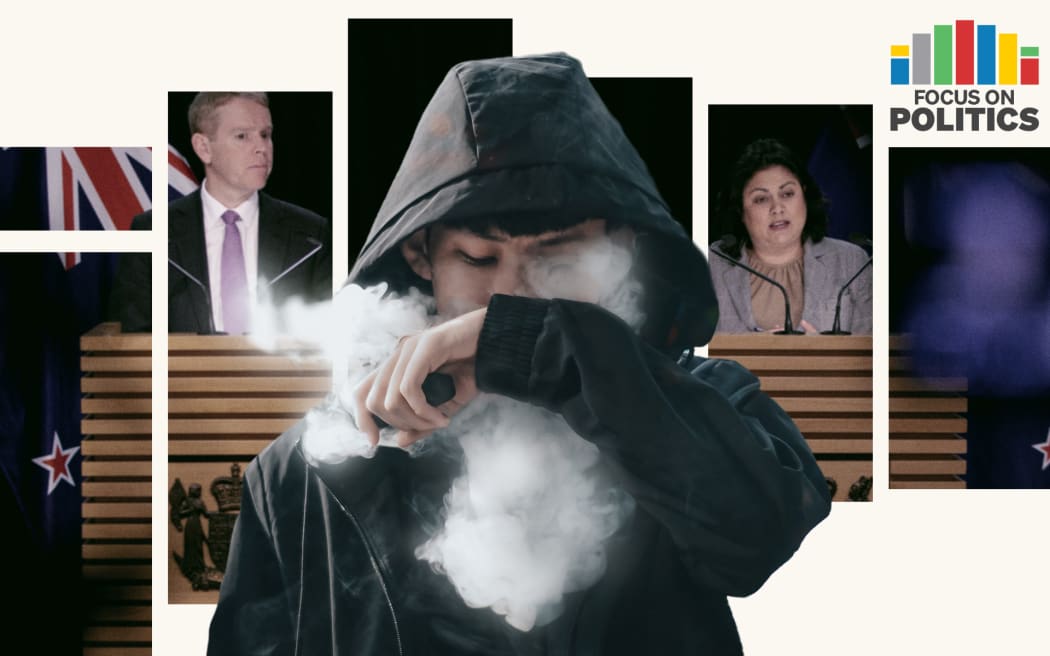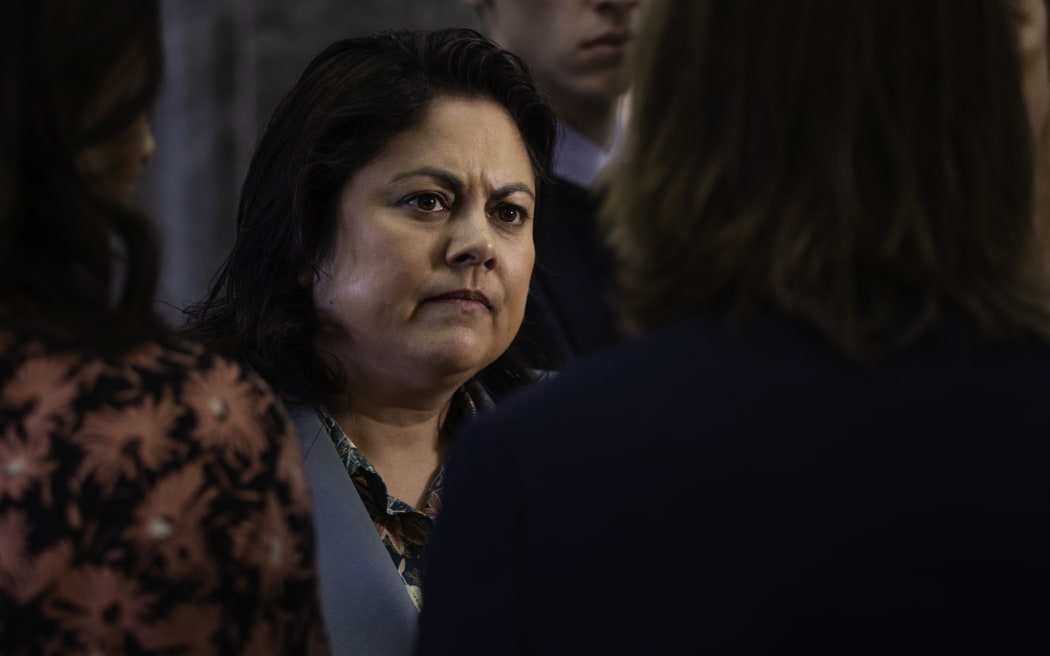
Photo: RNZ
"This was a sluggish government response," - Health Coalition Aotearoa co-chair Boyd Swinburn
The government's pointed to vapes as a key weapon in the war against cigarettes.
In the rush to reach its smokefree targets, however, there are fears the horse has bolted - with children exposed to a whole new addiction.
Vapes were in an unregulated wild-west market until 2020, when the government set a minimum age of 18, banned advertising, and restricted flavours to tobacco, menthol and mint - unless sold by specialist retailers. Those retailers have since continued to spread, many within reach of their most vulnerable customers: children.
Vaping in under-18s tripled between 2019 and 2021.
Education Minister Jan Tinetti told RNZ's education correspondent John Gerritsen vaping was being raised with her constantly: "I have principals that tell me this is just about their number one issue - particularly in secondary," she says. "I think out of the four schools that I went into last week, every single one of them brought vaping up to me."
Health Coalition Aotearoa co-chair Boyd Swinburn says the government's been slow to respond.
"There's a few years that we didn't have any regulations on the books and the vape shops have sprouted up like mushrooms - and dairies cut themselves in half to be able to sell vapes because they've got such a high profit margin that it makes them a bit irresistible really. So now we're having to deal with reversing that trend, which is much harder than having to prevent it in the first place."
Prime Minister Chris Hipkins has long talked about striking a balance between discouraging children from taking up the habit while encouraging it as a tool to help smokers quit.
The smokefree goal has been championed by Health Minister Ayesha Verrall, whose world-first legislation prohibiting anyone born after 2008 from ever being able to buy tobacco came into force in January.

Health Minister Ayesha Verrall Photo: RNZ / Angus Dreaver
Combined with ever-increasing excise taxes and reductions in nicotine levels and retailer numbers, smokers have never had more reasons to quit.
We have decades of knowledge on the harmfulness of tobacco, and so far the science says vapes - while addictive -are nowhere near as harmful. But less harm does not mean no harm - and there are fear about the unknowns of this relatively new phenomenon, with similar rates being seen in other countries.
Australia's complete ban on recreational vaping - restricting products to prescription-only - has led to a rising black market, and Dr Verrall in June said it would be a step too far for a country phasing out tobacco. Instead, she's announced new vape stores would be barred from within 300m of schools and marae. Disposable vapes - an environmental disaster - would also be banned, and while fruity flavours would remain available, their names would become more generic to avoid targeting young people.
Read more:
- Labour pledges to halve number of vape stores nationwide
- Vaping petition presented at Parliament: 'We as adults have failed our mokopuna'
- Labour's 'panic' over teen vaping shows it hasn't learned - ASH
- Vaping regulations: Under 100 infringement notices issued
- Labour's vape crackdown 'panic-based policy making,' opponent says
- Teens warned against hacking disposable vape batteries to squeeze out more hits
Hipkins on Monday admitted the government had not always got the balance right, and announced further curbs on vape retailers including cutting nicotine concentrations in some cases by more than half, and an earlier enforcement date for the disposables ban and proximity limits.
Then, on Tuesday, a mere 12 hours later, Labour announced its election policy would go still further: licences for vape retailers, with nationwide cap of 600 stores.
Verrall said the difference in approach was about timing. The initial changes were a quick tinkering with existing regulations; the election policy would need new legislation, meaning public consultation and contending with lobbyists.
Labour's social media pages made no distinction between the two: Verrall said it was quite normal "to set out what you've done and what you'd continue to do", on an area of such "complex change" - though the Cabinet Manual is clear government decisions appearing in party political material should be labelled as such.
The policies, predictably, have the vaping industry warning against overreach; and smoking cessation campaigners fearing it will mean less access for those who need the products to quit. On the other hand, Vape-Free Kids - which calls itself a grassroots group of concerned parents, whānau, teachers, and community members - says Labour's proposal doesn't go far enough.
Political parties agree something needs to be done.
National is supportive of the coming regulatory changes, but - with vaping suddenly a campaign issue - says it will have more to say on policy at a later date.
ACT's David Seymour has long criticised the government's vaping policies. He hasn't yet announced one of his own, but suggested sales could be limited to liquor stores, which already need a licence and to check customers' ages. It was an idea that appealed to Verrall, who said it was "a really interesting proposition" the government "could consider more".
Labour's campaign promise to stamp out youth vaping will appeal to the parents it's identified as a key demographic this election - but the last thing they'll want is to drive people back to tobacco.
In this week's Focus on Politics, Political Reporter Giles Dexter explores the conflicting priorities that meant Labour's vaping regulations may have come too late.
Listen free to Focus on Politics on Apple Podcasts, on Spotify, on iHeart Radio or wherever you get your podcasts.


